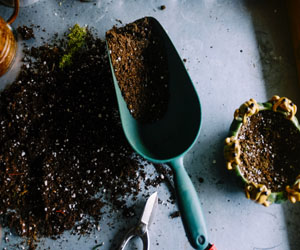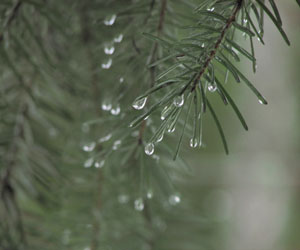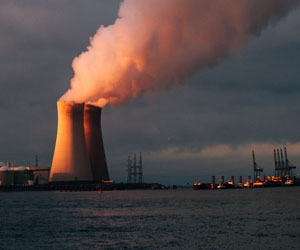


A Crucial Step Towards A Sustainable Future

Water, the elixir of life, is a finite and precious resource. As the world faces mounting environmental challenges, including water scarcity and pollution, the need for effective water conservation becomes more evident than ever. This article explores the significance of water conservation, its importance in addressing global water-related issues, and practical measures to save this vital resource.
The Global Water Challenge
Water scarcity is a pressing concern that affects both developed and developing nations. Climate change, population growth, urbanization, and inefficient water management practices all contribute to this crisis. According to the United Nations, by 2030, nearly half of the global population will be living in areas with high water stress, underscoring the urgency of effective water conservation.
The Significance Of Water Conservation
Water conservation is the practice of using water more efficiently and minimizing waste. It is a fundamental approach to address the water crisis for several reasons:
Preserving Natural Ecosystems: Adequate water conservation ensures that freshwater ecosystems, such as rivers, lakes, and wetlands, maintain their vitality, safeguarding biodiversity and ecological balance.
Reducing Energy Consumption: Treating, transporting, and heating water demands substantial energy. Water conservation lowers energy use and carbon emissions, contributing to a greener environment.
Mitigating Water Pollution: By reducing water usage, less polluted water enters wastewater treatment plants, making the treatment process more effective and minimizing the release of contaminants into natural water bodies.
Safeguarding Future Generations: Water is a finite resource. Conserving water today ensures that future generations will have access to clean, safe water.
Practical Measures For Water Conservation
Fix Leaks: One of the most straightforward steps is to repair leaking faucets, pipes, and fixtures. A dripping faucet can waste hundreds of gallons of water per year.
Upgrade Appliances: Install water-efficient appliances like low-flow toilets, water-saving showerheads, and energy-efficient washing machines to reduce water consumption.
Landscape Smartly: Use native or drought-tolerant plants in landscaping to minimize the need for irrigation. Employ mulch to retain soil moisture and reduce evaporation.
Collect Rainwater: Rainwater harvesting systems allow you to collect and store rainwater for outdoor use, reducing the need for tap water for gardening and other non-potable applications.
Limit Shower Time: Shortening your shower time by just a few minutes can save a significant amount of water.
Only Run Full Loads: When using dishwashers and washing machines, make sure you run full loads to maximize water efficiency.
Educate And Raise Awareness: Promote water conservation practices within your community, workplace, and household. Awareness and education are critical to widespread change.
Government And Policy Initiatives
Governments around the world are implementing policies and regulations to encourage water conservation. These measures include water use restrictions, incentives for water-efficient appliances, and investments in water infrastructure.
Water conservation is not merely a personal responsibility; it is a global imperative. The sustainable management of water resources is essential to secure a prosperous and healthy future for our planet. By adopting simple conservation practices and supporting water-efficient policies, we can collectively address water scarcity and make a significant contribution to the long-term sustainability of this invaluable resource.
Thriving In Compact Living
 1. Multifunctional Furniture
1. Multifunctional Furniture
One of the key principles of small space efficiency is multifunctional furniture. These pieces serve multiple purposes, allowing you to make the most of every square inch. Sofa beds, fold-out desks, and dining tables with hidden storage are excellent examples. They provide comfort and functionality without monopolizing valuable space.
2. Vertical Storage
Utilizing vertical space is a game-changer in small spaces. Wall-mounted shelves, cabinets, and hooks create storage opportunities while keeping the floor area open and uncluttered. Vertical storage can also lend a sense of height and depth to your small space, making it feel more expansive.
3. Clear Clutter Regularly
Living in a small space necessitates regular decluttering. Be selective about what you keep, and embrace the philosophy of "less is more." Donate or sell items you no longer need, and make a conscious effort to prevent new clutter from accumulating.
4. Dual-Purpose Rooms
In small homes, one room often serves multiple functions. For instance, your living room might double as a home office, or your bedroom may also function as a gym. Careful planning and the use of flexible furniture can help you transition seamlessly between these different roles.
5. Custom Storage Solutions
Small spaces often require custom storage solutions. Investing in customized cabinets, built-in shelves, and under-stair storage can help you maximize every available nook and cranny. Tailoring your storage to your specific needs can make a significant difference in small space efficiency.


Creative Landscaping Ideas
 2. Xeriscaping: For areas with limited water resources, xeriscaping is the way to go. This landscaping approach focuses on drought-tolerant plants, efficient irrigation systems, and mulching to conserve water. The result is a low-maintenance garden that thrives in arid conditions.
2. Xeriscaping: For areas with limited water resources, xeriscaping is the way to go. This landscaping approach focuses on drought-tolerant plants, efficient irrigation systems, and mulching to conserve water. The result is a low-maintenance garden that thrives in arid conditions.
3. Edible Landscaping: Why not turn your outdoor space into a source of fresh produce? Edible landscaping incorporates fruits, vegetables, and herbs into your garden design. Raised beds, vertical gardens, and fruit trees can create a beautiful and functional space that provides your family with fresh, homegrown produce.
4. Zen Gardens: Zen gardens are known for their minimalist and tranquil designs. These peaceful spaces often feature sand or gravel raked into patterns, along with carefully placed rocks and a few select plants. They provide a sense of serenity and are perfect for meditation or relaxation.
5. Cottage Gardens: Cottage gardens are characterized by their informal, abundant, and colorful arrangements. They typically include a mix of flowers, shrubs, and even some vegetables. The key is to create a slightly wild and romantic atmosphere, perfect for a more rustic and charming look.
6. Rock Gardens: If you have rocky or hilly terrain, consider creating a rock garden. These gardens use the natural features of the land, incorporating rocks, pebbles, and alpine plants. They provide a unique and visually appealing landscape.
7. Vertical Gardens: For small spaces or urban areas, vertical gardens are an excellent option. These gardens make use of walls, fences, or trellises to grow plants upwards, saving valuable ground space and adding a touch of greenery to urban environments.
Cleaning Your Home The Eco-Friendly Way
 Reduced Health Risks: Natural cleaning products are less likely to cause skin irritations, allergies, or other health problems associated with chemical exposure.
Reduced Health Risks: Natural cleaning products are less likely to cause skin irritations, allergies, or other health problems associated with chemical exposure.
Eco-Friendly: Natural cleaning solutions are gentle on the environment. They don't contribute to water pollution when washed down drains, and they reduce the production and disposal of harmful chemicals.
Versatility: Natural ingredients like vinegar, baking soda, and lemon juice can be used in a variety of cleaning tasks, reducing the need for multiple specialized cleaning products.
Common Natural Cleaning Solutions
Vinegar: White vinegar is a versatile natural cleaner that can be used to disinfect surfaces, remove stains, and even clean glass.
Baking Soda: Baking soda is an effective abrasive cleaner, perfect for scrubbing surfaces, deodorizing, and eliminating stains.
Lemon Juice: Lemon juice is a natural disinfectant that also leaves behind a fresh, citrus scent. It's great for cutting through grease and grime.
Essential Oils: Many essential oils, such as tea tree oil, lavender oil, and eucalyptus oil, have natural cleaning and disinfecting properties. They can be added to homemade cleaning solutions for added fragrance and antibacterial power.
Olive Oil: Olive oil can be used to clean and polish wooden surfaces and stainless steel appliances.
Understanding And Mitigating Our Footprint
 4. Resource Depletion: The overexploitation of natural resources, such as freshwater, minerals, and forests, depletes these finite resources at an unsustainable rate. This not only threatens the availability of essential resources but also contributes to habitat destruction and environmental degradation.
4. Resource Depletion: The overexploitation of natural resources, such as freshwater, minerals, and forests, depletes these finite resources at an unsustainable rate. This not only threatens the availability of essential resources but also contributes to habitat destruction and environmental degradation.
5. Plastic Pollution: The excessive use and improper disposal of plastic products have resulted in a global crisis of plastic pollution. Plastics take hundreds of years to decompose, and their accumulation in oceans, waterways, and ecosystems poses significant risks to wildlife and ecosystems.
6. Deforestation: Deforestation, primarily driven by agriculture and logging, has far-reaching consequences. It contributes to habitat loss, reduces carbon sequestration, and disrupts global climate patterns. It also affects indigenous communities that rely on forests for their livelihoods.
7. Overfishing: Overfishing and unsustainable fishing practices threaten marine ecosystems and the livelihoods of communities that depend on fisheries. It depletes fish populations and disrupts the balance of marine ecosystems.
Paving The Way For A Smarter World
 Enhancing Everyday Life
Enhancing Everyday Life
Intelligent solutions are all around us, making our daily routines more convenient and enjoyable. Take, for example, the personal virtual assistants like Siri and Alexa, which have become integral parts of many households. These AI-driven solutions can answer questions, provide weather updates, control smart home devices, and even play your favorite music with a simple voice command. They are a prime example of how intelligent solutions have become an indispensable part of our lives, adding a layer of convenience and personalization to our everyday experiences.
Efficiency In Business
In the corporate world, intelligent solutions are optimizing business operations, boosting productivity, and improving decision-making processes. Data analytics, for instance, helps companies gain insights into customer behavior and market trends. This, in turn, allows for more informed and targeted marketing strategies, ultimately leading to better outcomes and growth. Additionally, the automation of repetitive tasks through intelligent solutions can free up employees to focus on more creative and strategic aspects of their work.
Healthcare And Well-Being
The healthcare industry is witnessing a revolution through the application of intelligent solutions. Telemedicine, for instance, allows patients to receive medical consultations from the comfort of their homes. Wearable health monitoring devices provide real-time data to both patients and healthcare professionals, helping to manage chronic conditions and improve overall health. Artificial intelligence is also aiding in the analysis of medical images, enabling more accurate diagnoses and treatment planning.
Transportation And Mobility
Intelligent solutions have the potential to redefine the way we move from one place to another. Autonomous vehicles are a prominent example. These vehicles use sensors, cameras, and AI algorithms to navigate roads and make split-second decisions, aiming to increase safety and efficiency in transportation.